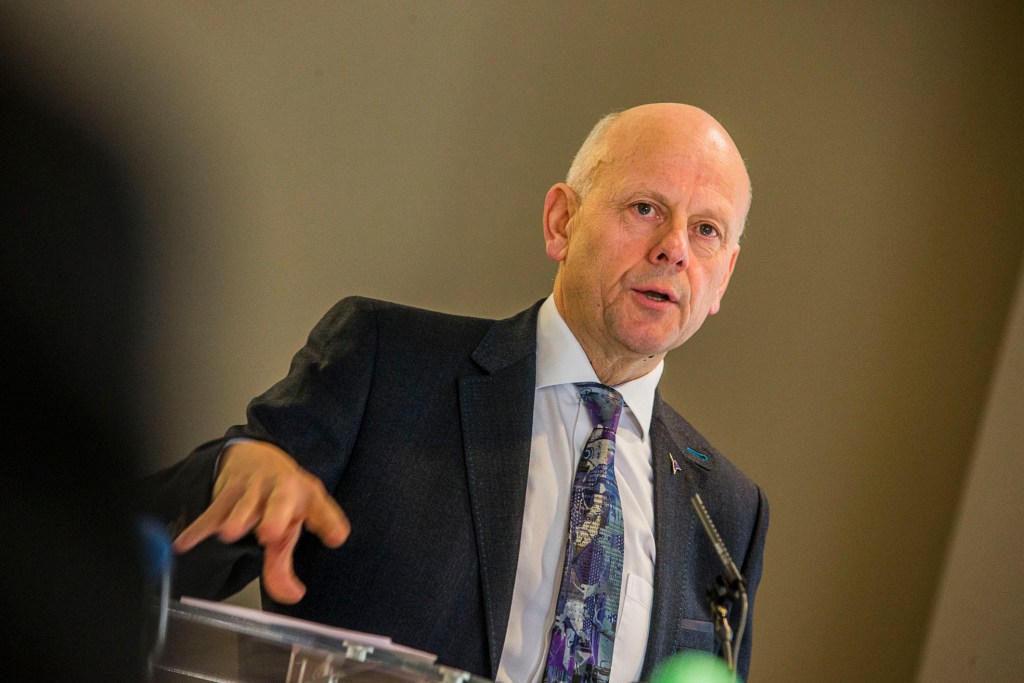Coronavirus could force closure of half of our care homes in Gwynedd, warns social care leader

A social care leader has warned that half the care homes in Gwynedd could be forced to close unless urgent action is taken.
According to Mario Kreft MBE, the chair of Care Forum Wales, many care homes are already having to take out loans and consider imminent closure because of the “perfect storm” of spiralling costs and falling income.
The sector was already fragile before the coronavirus crisis began and the pandemic threated to put many providers out of business.
The scale of the problem, he said, was illustrated by the fact that Wales’ 650 care homes provided 20,000 beds which was 8,000 more that the number of beds in hospitals.
He feared that mass care home closures would lead to the NHS being “completely overwhelmed by a tsunami of need”.
Mr Kreft said: “We have members who are increasing their staffing costs. They’re increasing other costs like buying their own PPE.
“And of course we’re seeing falling occupancy as people pass and as other homes choose not to admit people, because they’re terrified that it’s going to introduce the virus into those homes and obviously affect the residents they have.”
“A typical care home needs to have 90 per cent occupancy to be viable and anything below 85 per cent is not sustainable – but some homes are down 25 to 30 per cent occupancy.
“We have got people that are seriously talking to their banks, seriously talking within their organisation, whether the best thing and the safest thing for everybody is simply to close the doors,” he said.
“We’ve never, ever encountered anything quite like this in the history of the care sector in Wales, and the UK.
“Unless urgent support is forthcoming we will be seeing care home closures week on week over the summer months.
Among those who is under severe pressure Glyn Williams, who runs the 28-bed Gwyddfor Residential Care Home in Bodedern on Anglesey.
In desperation Mr Williams has launched an online appeal to raise £33,000 towards the costs, fearing he will have to shut within the month.
Mr Williams said: “The simple truth is we are in dire straits as things stand. The welfare of our residents is vitally important they are like our extended family. But we just can’t survive as we are so underfunded.”
Mr Kreft added: “The problem we are facing is that our residents are uniquely vulnerable because the majority of them are elderly and all of them have underlying health problems.
“We have 20,000 care home beds in Wales which is 8,000 more than the number of beds in hospitals which underlines the scale of the challenge.
“The £40 million in emergency funding promised by the Welsh Government should be a first instalment only because it is not enough to save the sector which was already chronically underfunded.
“To compound the problem, it is going to be distributed by local councils so I do not have confidence that all of it is going to reach the front line where it is desperately needed.
“The shortage of PPE remains a major concern as does the lack of a proper testing regime to screen staff and residents.
“It’s no wonder that many of our members feel they have been abandoned by the authorities because they sense there has been an acceptance about the inevitability of residents dying.
“This is why Care Forum Wales launched campaign in February to shield social care and save lives.
“Before this crisis care homes on average were running at around 90 per cent occupancy which has just about enabled them to keep going despite the funding challenges.
“As a result of the outbreak, occupancy levels are falling and wage costs are going through the roof while income is dropping.
“If average occupancy drops to 85 per cent or even below the whole of the infrastructure of social care in Wales is under genuine threat. If average occupancy drops below 80 pe cent we would be looking at mass care home closures unless the government gets a grip of the situation.
“The other side of the coin is that care homes are fearful of accepting patients from hospitals. They feel unsafe because they haven’t got enough personal protective equipment and support.
“The message I’m getting from providers is that they’re not taking anybody in because they are terrified about injecting death into their homes.
“Wales has very well run care homes with well trained staff who are heroically working on the front line but we are now in the midst of a perfect storm.
“It’s therefore vitally important for us to see the whole picture regarding loss of life so we can mitigate and sustain these vital community assets.”





